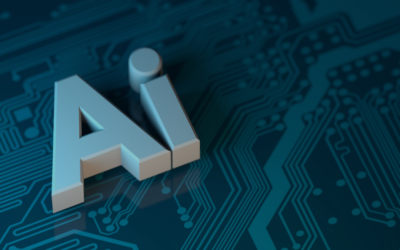Business management software solutions have improved and diversified dramatically over the last decade, so much so that today’s businesses almost have too many options on the table. To that point, decision makers at companies must choose between multiple solutions, including ERP, SCM and CRM. What is the difference between ERP CRM and SCM, and how can they affect a business?
SCM–The Basics
Every business offers products or services. For those who manage physical stock SCM, or Supply Chain Management, is a software solution that provides oversight of materials and products, and their associated data, as they proceed through the supply chain from supplier to consumer. By gaining access to key data in this process workflow, businesses are better able to coordinate workflows, improve efficiencies, and ensure that consumers get the product they need.
CRM–The Basics
You can look at CRM, or Customer Relationship Management software, as the ‘opposite’ of SCM, in some ways. CRM systems manage the customer relationship cycle, providing key insights into a business’ customer interactions. It’s an indispensable sales and marketing tool that gives you a place to store customer contact information and purchase history, launch marketing campaigns and uncover insights about the ‘soft touch’ moments that transform someone from a lead to a satisfied client.
ERP–The Basics
ERP, or Enterprise Resource Planning, is software designed to serve as an all-in-one business management solution. It is a suite of applications that work in tandem to act as a single source of truth for your business. Its central database gives decision makers actionable data across multiple departments, from product planning to sales to customer relations. ERP software can be everything or it can take a more minimal approach, thanks to its modular design, too. Businesses can create a bespoke ERP that suits their needs.
Besides the big data advantages of ERP, this holistic solution can also enhance collaboration and understanding across silos at a company. It gives end users access to collaborative spaces and data from other previously isolated departments.
CRM vs ERP: A Head-to-Head Comparison
CRM and ERP systems are two distinct software systems that play vital roles in managing business operations. Customer Relationship Management (CRM) is tailored towards enhancing customer interactions and relationships. It assists businesses in tracking sales leads, managing customer data, and improving customer service.
Enterprise Resource Planning (ERP) is a comprehensive solution that integrates various core business processes such as finance, human resources, inventory, and production. It provides a unified platform for streamlining operations, optimizing resource utilization, and enhancing overall efficiency across different departments.
CRM vs SCM: A Head-to-Head Comparison
What is the difference between SCM and CRM? Customer Relationship Management (CRM) and Supply Chain Management (SCM) serve distinct but equally important functions. CRM is primarily designed to strengthen customer engagement and relationship-building. It aids in managing sales interactions, customer communications, and marketing efforts. On the contrary, SCM focuses on the seamless coordination of the supply chain, encompassing activities from sourcing raw materials to delivering the final product to customers. It optimizes processes like procurement, production, distribution, and logistics to ensure a smooth flow of goods and services.
ERP vs SCM: A Head-to-Head Comparison
ERP vs supply chain management systems, how do they compare? SCM and ERP are essential software solutions that contribute uniquely to an organization’s efficiency. ERP acts as a centralized hub for managing various internal business processes. It integrates functions such as finance, human resources, inventory management, and more, providing a comprehensive view of an organization’s operations. In contrast, SCM is geared towards optimizing the supply chain’s intricate web. It encompasses activities like procurement, manufacturing, distribution, and logistics, all with the goal of ensuring products reach customers promptly and efficiently. So, the difference between ERP and SCM boils down to this. While ERP focuses on overall process management, SCM homes in on the logistics and flow of goods throughout the supply chain.
The Bottom Line
ERP can include both CRM and SCM besides modules that address the needs of accounting, marketing and sales, inventory management, and more.
Choosing the Right Fit
Now that you understand the difference between ERP CRM and SCM, which solution is the right fit for your company? There are several factors to consider. For one, there’s the matter of scale. As a holistic solution, ERP may offer more bells and whistles than some smaller SMBs need. It is, however, a customizable solution that can scale to your needs and grow with ease.
Any company that handles large volumes of physical product can benefit from a SCM, of course. Retailers, manufacturers, and larger companies with multiple locations are all ideal fits for SCM.
While any company can benefit from managing customer relations effectively, CRM can bring the most advantages to companies that depend on lead flow and management, such as service-oriented businesses or companies in the hospitality sector.
However, ERP encompasses them all and is one of the most effective tools for comprehensive business management available today. Have you had your own experiences with ERP, SCM, or CRM? What are the advantages of any or all of them for your company? Let us know in the comments below. If you want to learn more about ERP and other business management solutions, start exploring your options today.




